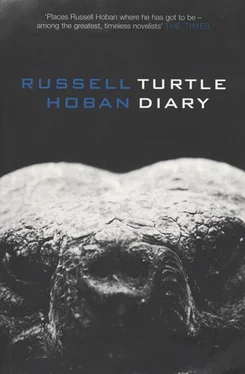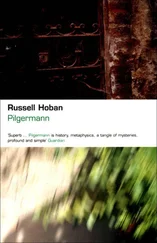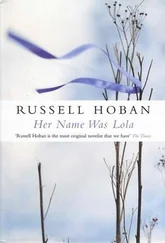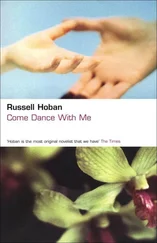Russell Hoban - Turtle Diary
Здесь есть возможность читать онлайн «Russell Hoban - Turtle Diary» весь текст электронной книги совершенно бесплатно (целиком полную версию без сокращений). В некоторых случаях можно слушать аудио, скачать через торрент в формате fb2 и присутствует краткое содержание. Год выпуска: 2000, Издательство: Bloomsbury Publishing PLC, Жанр: Современная проза, на английском языке. Описание произведения, (предисловие) а так же отзывы посетителей доступны на портале библиотеки ЛибКат.
- Название:Turtle Diary
- Автор:
- Издательство:Bloomsbury Publishing PLC
- Жанр:
- Год:2000
- ISBN:нет данных
- Рейтинг книги:3 / 5. Голосов: 1
-
Избранное:Добавить в избранное
- Отзывы:
-
Ваша оценка:
- 60
- 1
- 2
- 3
- 4
- 5
Turtle Diary: краткое содержание, описание и аннотация
Предлагаем к чтению аннотацию, описание, краткое содержание или предисловие (зависит от того, что написал сам автор книги «Turtle Diary»). Если вы не нашли необходимую информацию о книге — напишите в комментариях, мы постараемся отыскать её.
Turtle Diary — читать онлайн бесплатно полную книгу (весь текст) целиком
Ниже представлен текст книги, разбитый по страницам. Система сохранения места последней прочитанной страницы, позволяет с удобством читать онлайн бесплатно книгу «Turtle Diary», без необходимости каждый раз заново искать на чём Вы остановились. Поставьте закладку, и сможете в любой момент перейти на страницу, на которой закончили чтение.
Интервал:
Закладка:
There was a long row of little beach-huts side by side like garages. It was a rainy day in early spring. A man had his hut opened up, the whole front open like a dolls’ house. He was doing the sort of things men do when they smoke pipes and repair their boats in early spring. Mending something I suppose. There was no boat, his hut was his boat. All the little beach-hut fronts pushed me towards the sea and I jumped down from the wall on to the pebbles that rolled and clicked under me as I walked. I thought: what if there were a stone with my name on it? Then I thought, what if my name were on every stone? Then: the name of every stone is in me. I can’t say the name of every stone but it is in me. There were no birds that I remember that day. The hotels along the front were as high as in childhood and as remote, even when seen close to.
This afternoon I bought a marked-down bird book with plates by John Gould (1804–1881). There’s a handsome picture of two oyster-catchers. ‘At running, diving, and swimming they are unrivalled, while their vigilance is greatly appreciated by the other birds of the shore,’ says the book. The newer bird books have hundreds of posh pictures, the proficiency of the artists is dazzling. But the birds all look as if they’d been done from photographs. Certainly there were no such bird pictures before the camera came into use. Gould’s birds are beautiful but modestly done and he seems to have looked at each one carefully and long. His eagle owl, Bubo bubo, is all ferocity but without malice. Dangling from his beak is a dead rabbit who looks exactly like Peter Rabbit without the blue jacket. Bubo bubo’s dreadful amber eyes say simply, ‘It has fallen to me to do this. It is my lot.’ His fierce woolly owl-babies huddle before him waiting for their dinner.
5 William G
I went to the Zoo again.
Cold day. Windy. Walking down Parkway from the Camden Town tube station I passed a girl with her anorak zipped up pushing a baby in a push-chair, looking cold. Autumn? No, spring. Summer next. Four seasons to a year. I can easily imagine getting up one morning and deciding not to bother with any more seasons. I went in by the South Gate and passed the Waders Aviary on my way to the sea turtles.
Lots of noise from the reeds and marsh plants inside the cage. More than one voice, some sort of a controversy: kleep kleep kleep. Kleep kleep. Two black-and-white birds with orange-ringed eyes set neatly in their heads, long orange bills and the sort of chilblained but durable-looking purplish legs one sees on some lady birdwatchers. But these birds were both men I think. Maybe it was one bird and a doppel-ganger. They were walking side by side shouting at each other. They passed out of view behind the reeds. I went round to the other side of the cage where I could see them as they came out on to the concrete beach round their wading-pool. They were walking with their heads down and if they’d had hands they would have had them clasped behind their backs. Each one’s bill was pointed down and away from the other and they looked stubbornly sideways at each other as they conversed.
‘Kleep it and have klept with it for God’s sake,’ said one.
‘I don’t have to kleep it just because you klawp I should,’ said the other.
‘Then don’t kleep it,’ said the first one. ‘It’s no klank off my klonk.’
‘Oh aye,’ said the second one. ‘You klawp that now but that’s not what you klawped a little klink ago.’
‘I klick very klenk what I klawped a little klink ago,’ said the first one. ‘I klawped either kleep it or don’t kleep it but stop klawping about it. That’s what I klawped.’
‘It’s all very klenk for you to klawp “Kleep it,’” said the second one. ‘You’re not the one that has to kleggy back the kwonk.’
I didn’t want to hear any more. There was a sign inside the cage with pictures of the inmates. Those two were oyster-catchers. That’s a laugh. I’d like to know when the last time they caught an oyster was. At one end of their pool, which was nothing more than a depression in the concrete with some standing water in it, some very old mussels were lying about. There were other birds with their pictures on the sign but I didn’t want to know.
Have the gibbons been corrupted by captivity? How can they possibly be happy in a cage, but they seem not to care about it especially. Debonair is the only word for them. Maybe aerial acrobatics are to them what jazz is to musicians who do it wherever they are and whether they get paid or not, just for the thing itself.
They have quite a large sort of flight cage with transverse bars at regular intervals for them to swing on. They saunter through the air in great long easy arcs, long arms revolving alternately: catch, let go, catch, let go, and all the time not particularly paying attention and as if with their hands in their pockets. Their manner is cool but lively, not withdrawn. Their small black faces are full of Zen. Jazz acrobats is what they are and they seem philosophically beyond such trifles as a cage. They’re above me, I admit it. And they don’t seem to be snobs about it either.
I had sort of a bursting feeling as if my self were a wall round me that I couldn’t knock down or climb over. I have no talent, no Zen like that of the gibbons. Once, twice, long ago. Out of it, away and in the clear. What’s the use of remembering. Out of it was at the same time into it. There’s a wall inside the self as well. Can’t get through any more. Can’t live is what it amounts to. No place to live. Get through the days, the seasons, oh yes. But no place to be. No way to hold the sun in the eye, be held by it swimming, swimming.
The wax people downstairs at Madame Tussaud’s contemplating in wax their crimes get through the days, the nights, the seasons. The thought escapes me, there was more to it. Prisons are all we know how to make, even in wax. No wax sea turtles, thank God for that.
There they were in the golden-green murk of their little box of sea, their little bedsitter of ocean. One almost expected a meter in the corner of it where they had to put in 5p to keep the water circulating. Thousands of miles in their speechless eyes, submarine skies in their flipper-wings. No beach of course, no hot sand for the gravid females to crawl up on to, to lay their eggs.
A little boy pointed to the big loggerhead turtle. ‘Could he get rid of me?’ he said to his mother. She was ever so well-groomed.
‘Oh no,’ she said, laughing upper-class and mumsily. ‘They’re quite harmless.’
The male loggerhead bit the female on the neck and tried to mount her. Not on. She wasn’t having any. Maybe the females in the Aquarium don’t get gravid, have no eggs to lay. The lady walked away with her knickers full of gentility, her son followed, still not got rid of.
Thousands of miles of navigation, I couldn’t get it out of my mind. There was a girl standing next to me, a burstly sort of girl, bursting out of her tight trousers and blouse, bursting with health and burstly genes. She’d have no trouble getting gravid whenever she liked. I was still thinking of the thousands of miles. ‘Nobody knows how they do it,’ I said.
‘You just have to be here at the right time and you can see them do it,’ she said, Burst burst.
The air seemed full of noise, I sat down on a bench and closed my eyes, saw golden-green water, thousands of miles.
6 Neaera H
Madame Beetle seems not to fancy raw meat. All of what I’d given her lay about in the plants and on the shipwreck and went white and sodden. On the other hand, maybe she has eaten it. In the larval stage the water-beetle doesn’t eat in the ordinary way, it injects digestive fluid into its prey and sucks out the liquefied tissues. Maybe Madame Beetle’s never grown up. The meat certainly looks as if there’s no nutrition left in it. I tried her with a bit of braised beef and I think she ate some of it.
Читать дальшеИнтервал:
Закладка:
Похожие книги на «Turtle Diary»
Представляем Вашему вниманию похожие книги на «Turtle Diary» списком для выбора. Мы отобрали схожую по названию и смыслу литературу в надежде предоставить читателям больше вариантов отыскать новые, интересные, ещё непрочитанные произведения.
Обсуждение, отзывы о книге «Turtle Diary» и просто собственные мнения читателей. Оставьте ваши комментарии, напишите, что Вы думаете о произведении, его смысле или главных героях. Укажите что конкретно понравилось, а что нет, и почему Вы так считаете.












